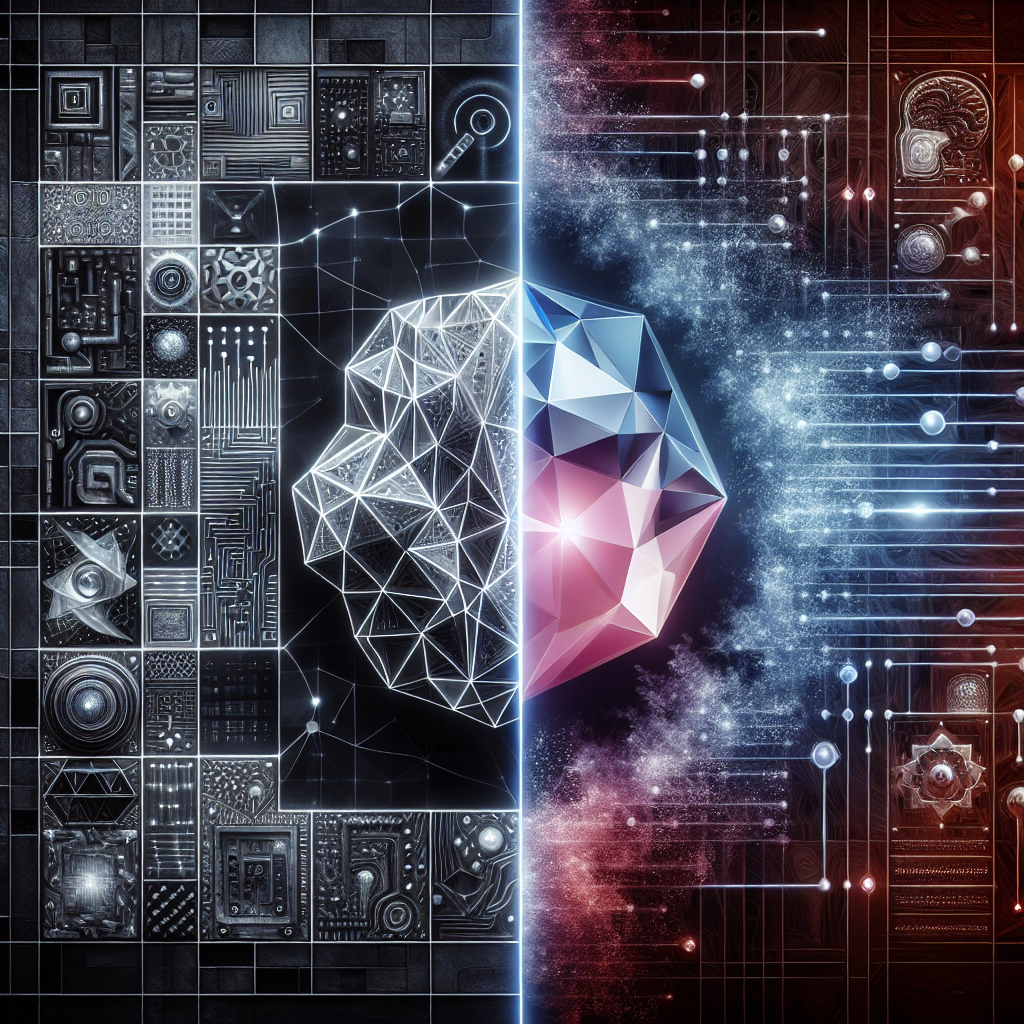Artificial General Intelligence (AGI) is a term that refers to the ability of a machine to perform any intellectual task that a human can do. This includes tasks such as reasoning, problem-solving, understanding language, and learning from experience. AGI is seen as the next frontier in artificial intelligence, as it has the potential to revolutionize many aspects of society.
In this article, we will compare AGI with human intelligence, exploring the similarities and differences between the two. We will also address common questions and misconceptions about AGI.
AGI vs. Human Intelligence: A Comparison
1. Cognitive Abilities
Human intelligence is characterized by its ability to reason, learn, understand language, and solve complex problems. AGI aims to replicate these cognitive abilities in machines. While current AI systems excel at specific tasks, such as image recognition or playing chess, they lack the flexibility and adaptability of human intelligence.
One key difference between AGI and human intelligence is the way in which information is processed. Human brains are highly interconnected networks of neurons that communicate through electrochemical signals. AGI systems, on the other hand, rely on algorithms and data processing to simulate cognitive functions.
2. Learning and Adaptability
Human intelligence is characterized by its ability to learn and adapt to new situations. We can acquire new knowledge through experience, make decisions based on incomplete information, and apply abstract reasoning to solve problems. AGI systems aim to replicate this learning capability through techniques such as deep learning and reinforcement learning.
While AI systems can be trained to perform specific tasks, they lack the generalization and transfer learning abilities of human intelligence. For example, a self-driving car may be proficient at navigating a specific route, but it may struggle in unfamiliar environments or under adverse weather conditions.
3. Emotional Intelligence
Another key difference between AGI and human intelligence is emotional intelligence. Humans are capable of experiencing and expressing emotions, which play a crucial role in decision-making and social interactions. AGI systems, by contrast, lack the capacity for emotions and empathy.
While some researchers are exploring the potential of incorporating emotional intelligence into AI systems, it remains a challenging and controversial area of research. Critics argue that imbuing machines with emotions could lead to ethical dilemmas and unpredictable behavior.
4. Ethical and Societal Implications
The development of AGI raises numerous ethical and societal implications. As machines become increasingly intelligent and autonomous, questions arise about their impact on employment, privacy, security, and human rights. There are concerns about the potential misuse of AGI for surveillance, manipulation, and warfare.
The concept of AGI also challenges our understanding of intelligence and consciousness. Some researchers argue that intelligence is not limited to biological organisms and that machines could eventually surpass human intelligence. Others caution against anthropomorphizing AI and emphasize the importance of human values and ethics in AI development.
5. Limitations and Challenges
Despite the rapid advancements in AI technology, there are several limitations and challenges facing the development of AGI. One major challenge is the lack of interpretability and transparency in AI systems. Deep learning models, for example, are often black boxes that make it difficult to understand how decisions are made.
Another challenge is the need for robust and reliable AI systems. AGI must be able to handle uncertainty, ambiguity, and adversarial attacks in real-world environments. Researchers are working on developing AI systems that are more robust, explainable, and trustworthy.
FAQs about AGI
Q: Will AGI surpass human intelligence?
A: It is possible that AGI could surpass human intelligence in certain cognitive tasks, such as data analysis or pattern recognition. However, the concept of superintelligence, where AI surpasses human intelligence in all domains, remains a topic of debate among researchers.
Q: How will AGI impact the job market?
A: The development of AGI is expected to have a significant impact on the job market, as machines take on more tasks traditionally performed by humans. While some jobs may be automated or eliminated, new opportunities may emerge in areas such as AI research, data science, and cybersecurity.
Q: What ethical considerations should be taken into account in AGI development?
A: Ethical considerations in AGI development include issues such as bias, fairness, transparency, accountability, and privacy. Researchers and policymakers must address these concerns to ensure that AI systems are developed and deployed responsibly.
Q: Can AGI be controlled and regulated?
A: Controlling and regulating AGI is a complex and challenging task. Some researchers advocate for the development of ethical guidelines, governance mechanisms, and oversight frameworks to ensure the safe and responsible use of AI technology.
Q: How can I learn more about AGI?
A: There are numerous resources available for learning more about AGI, including books, research papers, online courses, and conferences. Organizations such as the Future of Life Institute and the Partnership on AI also provide valuable insights into the development and implications of AGI.
In conclusion, the comparison between AGI and human intelligence highlights the similarities and differences between the two. While AGI has the potential to revolutionize many aspects of society, it also raises numerous ethical, societal, and technical challenges. As researchers continue to push the boundaries of AI technology, it is essential to consider the implications of AGI on our future.

